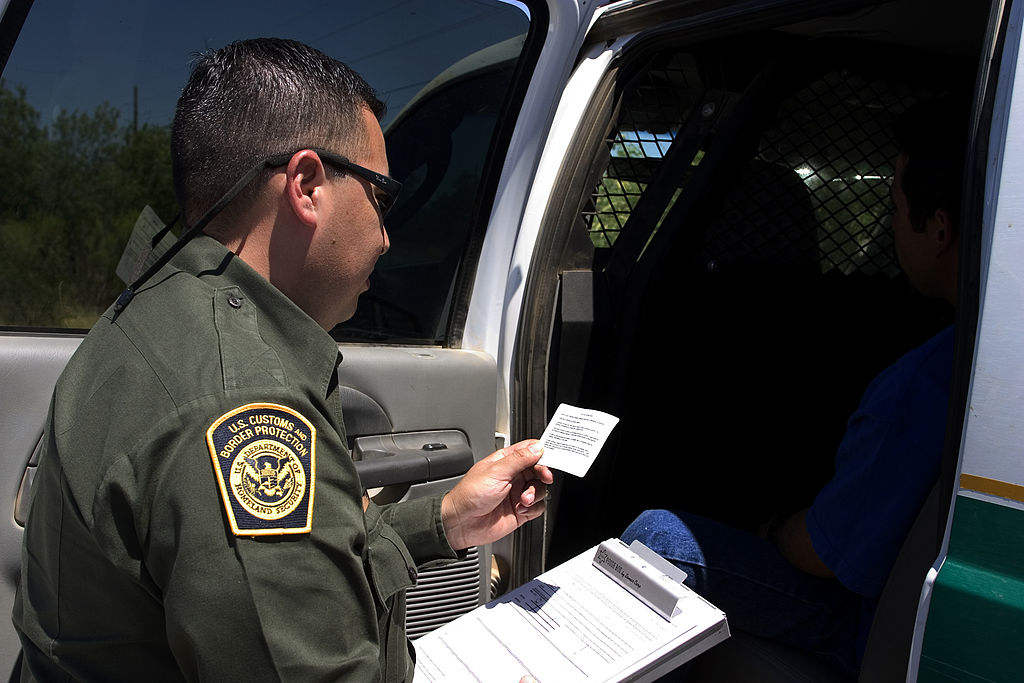
TORONTO—Ontario will no longer allow the Canada Border Services Agency to join the province’s road safety blitzes, which federal agents have used to make arrests on immigration violations, the government announced Friday.
Transportation Minister Steven Del Duca sent a letter to federal Public Safety Minister Steven Blaney saying that partnering with the CBSA “does not align” with his ministry’s mandate to make roads as safe as possible.
Ontario’s Liberal government ordered the review of the partnership with the CBSA after a joint commercial vehicle roadside blitz in Toronto in mid-August led to the arrest of 21 undocumented workers.
“As a result, effective immediately, the ministry will no longer partner with the CBSA on commercial motor vehicle enforcement initiatives,” wrote Del Duca.
“The ministry will only partner on joint enforcement initiatives with road safety partners that have a shared objective to protect and ensure road safety and commercial carrier compliance.”
The arrests at the Toronto blitz of commercial vehicles were the catalyst for reviewing the province’s relationship with the border agency, said Del Duca.
“It was that initial incident that caused me to ask questions and ask for the review,” he said in an interview.
Blaney’s office defended the practice of arresting people for immigration violations during road safety operations.
“Minister Blaney is concerned about this decision and will respond to Minister Del Duca’s letter,” said spokesman Jason Tamming.
“As a result of this blitz, CBSA was able to apprehend over 20 people who were violating Canadian laws.”
Del Duca insisted that partnering with the CBSA wasn’t in line with his ministry’s objectives.
“This is not to suggest CBSA does a good job or a bad job,” he said.
“It became pretty clear to me that partnering with CBSA didn’t necessarily make sense with respect to being in alignment with our road user safety goals and objectives, and that’s why we made the decision to end the relationship.”
Ontario’s New Democrats wrote Premier Kathleen Wynne and ombudsman Andre Marin last month to demand an investigation into the arrests, saying that the roadside inspections are meant to improve safety and are “not for immigration-related interrogations, arrests and deportation.”
NDP immigration critic Teresa Armstrong said Friday she still wants the ombudsman to conduct an independent investigation.
“We need to find out what really happened and what role the Liberal government played that resulted in these, and any other immigration arrests,” Armstrong said in a statement.
“Why did it take political and community pressure for the government to realize CBSA’s immigration enforcement and the MTO’s commercial traffic safety blitzes had no shared mandate? How many people were interrogated, arrested and deported over the years because of this practice?”
A lawyer who represented two Mexican men arrested in the August blitz accused CBSA agents of “aggressively” demanding identification from members of visible minorities during the four-hour roadside operation, including from one man who was a passenger, not a driver.
Macdonald Scott said at the time that the arrests were made in an area where construction labourers wait to be picked up by potential employers.
“It’s racial profiling,” said Scott. “I asked my clients, ‘Do you see them stopping white people?’ They said, ‘No, they’re only stopping Latinos.”‘
Del Duca’s letter to the federal government said Ontario will keep inspecting commercial vehicles at border entry points because “they do not involve CBSA resources.”